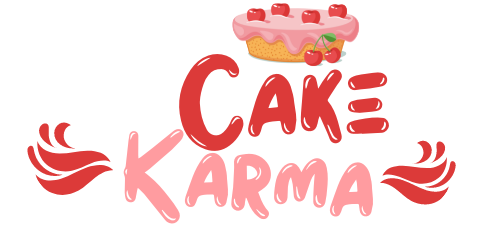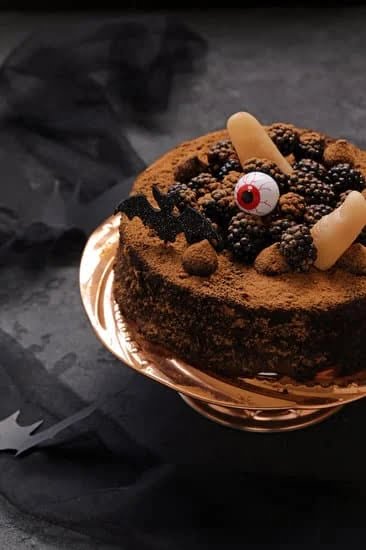What does a cake decorator do? A cake decorator is a skilled professional who specializes in making cakes visually appealing. This can involve anything from creating intricate designs with frosting to sculpting edible figures out of fondant. The art of cake decorating has a rich history dating back centuries, and it continues to be an integral part of the baking industry today.
Cake decorating has been practiced for centuries, with evidence of ornately decorated cakes dating back to ancient civilizations. However, modern cake decorating as we know it today truly began to take shape in the 17th century with the introduction of sugar paste and marzipan. Since then, cake decorating has evolved into a highly specialized art form, with professionals continually pushing the boundaries and developing new techniques and styles.
In this article, we will explore the world of cake decorating, delving into the responsibilities, skills, tools, techniques, working environment, educational paths, career opportunities, and advice for aspiring cake decorators. Whether you are considering a career in cake decorating or simply want to learn more about this fascinating profession, this article will provide valuable insight into what it takes to become a successful cake decorator. So sit back and prepare to be inspired by the sweet world of cake decoration.
Job Description
A cake decorator is a professional who specializes in creating visually appealing designs and decorations on cakes. They are responsible for transforming plain cakes into works of art through the use of various techniques and tools. The art of cake decorating has been around for centuries, with evidence of decorated cakes dating back to ancient civilizations such as the Egyptians and Greeks.
Main Responsibilities of a Cake Decorator
One of the main responsibilities of a cake decorator is to create designs and decorations on cakes according to the client’s specifications. This may involve using buttercream, fondant, or other edible materials to craft intricate patterns, flowers, or other embellishments. Cake decorators also need to have a keen eye for detail, as they have to ensure that their creations are symmetrical and visually appealing.
Skills and Qualifications Needed
To be successful in this role, cake decorators should possess creativity, artistic ability, and strong attention to detail. They should also have good hand-eye coordination and be able to work efficiently under time constraints.
While formal education is not always required, some employers may prefer candidates with a degree or certification in baking or pastry arts. Additionally, an understanding of food safety regulations and knowledge of different types of ingredients and flavors are essential for anyone pursuing a career in cake decorating.
Overall, what does a cake decorator do? They play a crucial role in adding the finishing touches to any celebration by creating beautifully decorated cakes that leave a lasting impression on clients and guests alike.
Tools and Equipment
Cake decorators rely on a variety of tools and equipment to create their beautiful and intricate designs. From basic utensils to specialized gadgets, these tools play a crucial role in the cake decorating process.
One of the most essential tools for a cake decorator is the piping bag and various tips. These are used to create different shapes, patterns, and textures using icing or frosting. Fondant smoothers, cutters, and embossers are also important for working with fondant, a popular ingredient in cake decorating. In addition, sculpting tools like modeling sticks and brushes are used for adding intricate details to cake decorations.
Another vital piece of equipment is the turntable, which allows decorators to easily rotate the cake while working on it. This enables them to apply even layers of frosting or fondant, as well as achieve smooth finishes. Airbrush systems are also commonly used for adding color and detail to cakes, creating stunning effects that elevate the overall design.
The importance of each tool cannot be overstated; they not only facilitate the creative process but also contribute to the overall quality of the finished product. Without these tools and equipment, it would be nearly impossible for cake decorators to bring their artistic visions to life.
Aspiring cake decorators must familiarize themselves with these tools and learn how to use them effectively in order to succeed in this field. Understanding the function and purpose of each tool is crucial for executing designs with precision and finesse. Additionally, staying updated on emerging tools and techniques is essential for remaining competitive in the ever-evolving world of cake decorating.
Techniques and Styles
Cake decorating is a delightful and artistic craft that involves the use of various techniques and styles to create beautiful and delicious works of art. A skilled cake decorator must have a firm grasp on different decorating methods, such as piping, fondant work, sculpting, and more. Here are some of the most commonly used techniques in cake decorating:
- Piping: This technique involves using a pastry bag and different frosting tips to create intricate designs such as borders, flowers, and lettering on cakes.
- Fondant: Fondant is a versatile sugar paste that can be rolled out and draped over cakes to create a smooth surface for decorating with additional details like bows, ruffles, and more.
- Sculpting: Cake decorators may also use sculpting techniques to create three-dimensional shapes and structures out of cake and other edible materials.
In addition to these techniques, cake decorators often incorporate various styles into their work to keep up with current trends and meet the preferences of their clients. Some popular styles in cake decorating include minimalist designs, floral motifs, vintage-inspired decorations, and modern abstract patterns.
It’s important for aspiring cake decorators to not only learn these techniques but also stay updated on the latest styles and trends in the industry. This continuous learning allows decorators to expand their skills and offer a wide range of options for their customers. With dedication to mastering different techniques and staying creative with styles, cake decorators can truly stand out in this competitive field.
Ultimately, being a successful cake decorator requires not only technical skill but also artistic flair – anyone interested in pursuing this career should be passionate about creating visually stunning and delicious confections.
Working Environment
Cake decorators work in a variety of environments, including bakeries, pastry shops, and as freelance professionals. Each working environment comes with its own set of challenges and rewards.
Bakeries and Pastry Shops
In a bakery or pastry shop, cake decorators are often part of a team of bakers and pastry chefs. They have the opportunity to collaborate with colleagues on unique designs and creations, and may have the chance to specialize in certain types of cakes or desserts. This environment often provides stability and a consistent workload, as well as the opportunity to learn from experienced professionals in the industry.
Freelance Work
Many cake decorators choose to work freelance, taking on custom orders for special occasions such as weddings, birthdays, and other celebrations. This offers freedom and flexibility in terms of setting their own schedule and choosing the projects they want to take on. However, it also presents challenges such as sourcing clients, managing finances, and creating a strong brand identity to stand out in a competitive market.
Overall, the working environment for cake decorators can be both fulfilling and demanding. It requires creativity, attention to detail, and the ability to adapt to different settings and client preferences. Regardless of the specific work environment, cake decorating can be a rewarding career for those with a passion for baking and design.
By understanding what does a cake decorator do within different working environments allows individuals to make an informed decision when considering pursuing a career in this field.
Educational Paths
Cake decorating is a specialized skill that requires a combination of artistic ability, attention to detail, and technical proficiency. As such, there are several educational paths that aspiring cake decorators can pursue to gain the necessary knowledge and experience in this field.
Here are some formal education options for individuals interested in pursuing a career in cake decorating:
- Culinary School: Many aspiring cake decorators choose to attend culinary school to gain a solid foundation in baking and pastry arts. These programs often include courses specifically focused on cake decorating techniques, such as piping, fondant work, and sugarcraft.
- Baking and Pastry Arts Programs: Some vocational schools and community colleges offer certificate or diploma programs specifically tailored to baking and pastry arts. These programs typically cover basic baking techniques as well as advanced cake decorating skills.
- Apprenticeships: Another way to gain practical experience in cake decorating is through apprenticeships or on-the-job training at bakeries or pastry shops. This hands-on learning approach allows individuals to learn directly from experienced professionals in a real-world setting.
It’s important for aspiring cake decorators to continue learning and developing their skills even after completing their formal education. Attending workshops, participating in competitions, and staying up-to-date with the latest trends in cake decorating are all valuable ways to advance in this field.
Continuous learning not only enhances a decorator’s expertise but also opens up opportunities for career advancement within the industry. By staying current with new techniques, styles, and tools, individuals can position themselves as sought-after professionals in the world of cake decorating.
Career Opportunities
Cake decorating offers a wide range of career opportunities for those with a passion for creativity and baking. One of the most common career paths for cake decorators is working in bakeries or pastry shops. In these settings, cake decorators are responsible for creating custom designs and decorations for cakes ordered by customers. This can involve anything from simple birthday cakes to elaborate wedding cakes.
Another career opportunity for cake decorators is freelancing. Many cake decorators choose to start their own business and take on clients independently. This allows them the flexibility to work from home or a dedicated workspace, creating custom cakes for special events such as weddings, birthdays, and corporate functions.
In addition to traditional bakery and freelance work, cake decorators may also find opportunities in specialized areas such as catering companies, event planning firms, or even teaching cake decorating classes. The versatility of this profession allows individuals to apply their skills in various settings and explore different aspects of the industry.
Whether it’s creating show-stopping wedding cakes or teaching others how to master the art of cake decorating, there are numerous career paths available to those with a passion for this creative field.
Aspiring cake decorators interested in exploring different career opportunities within the industry can benefit from networking with professionals already working in the field and staying updated on current trends and techniques through workshops, online courses, and industry events. By keeping an open mind and being proactive about seeking new opportunities, cake decorators can build a successful and fulfilling career in this dynamic and rewarding profession.
Advice for Aspiring Cake Decorators
If you are considering a career as a cake decorator, there are a few things to keep in mind to set yourself up for success. Firstly, it’s important to have a passion for baking and creativity, as these are the cornerstones of cake decorating.
A keen eye for detail and good hand-eye coordination are also essential skills for this profession. Additionally, having good time management and organizational skills will help you stay on top of multiple orders and deadlines.
It’s also crucial to invest in your education and training. While some cake decorators are self-taught, completing a formal education program in baking and pastry arts or culinary arts can provide you with a solid foundation of knowledge and skill. Many technical or vocational schools, as well as community colleges, offer certificate or degree programs specifically focused on baking and pastry arts.
Furthermore, seeking out opportunities for internships or apprenticeships with experienced cake decorators can provide invaluable hands-on experience and mentorship. These experiences can also help you build a professional network within the industry, which may lead to job opportunities or collaborations in the future.
Finally, don’t be afraid to experiment with different styles and techniques in cake decorating. Whether it’s through online tutorials, workshops, or experimenting on your own time, continually expanding your skill set will make you more versatile and competitive in the field.
| Skills Needed | Education Options |
|---|---|
| Passion for baking and creativity | Formal education programs at technical or vocational schools |
| Keen eye for detail and good hand-eye coordination | Certificate or degree programs in baking and pastry arts |
| Good time management and organizational skills | Community college programs focused on culinary arts |
Conclusion
In conclusion, a cake decorator plays a crucial role in the culinary world, using their creative skills and artistic talents to transform simple cakes into stunning works of art. From piping intricate designs to sculpting elaborate figures out of fondant, cake decorators bring joy to many special occasions with their beautifully decorated confections. The job requires patience, precision, and an eye for detail, as well as the ability to keep up with evolving techniques and styles in the industry.
For those considering a career as a cake decorator, it is important to be well-versed in the various tools and equipment used in this profession. Additionally, mastering different decorating techniques and staying updated on popular styles and trends will set one apart as a skilled professional in this field. While formal education options are available for aspiring cake decorators, continuous learning through workshops, seminars, and online resources is also essential for career growth.
Ultimately, the role of a cake decorator goes beyond simply creating visually appealing cakes; it involves bringing joy and happiness to others through edible works of art. Whether working in a bakery or pastry shop, or freelancing for special events and occasions, cake decorators have the opportunity to turn their passion into a fulfilling career. To those interested in pursuing this path, remember that dedication and perseverance will lead to success in this creative and rewarding profession.
Frequently Asked Questions
What Are the Duties of a Cake Decorator?
The duties of a cake decorator typically involve baking cakes, creating designs with frosting or fondant, and adding decorative elements such as flowers or edible figurines. They must also ensure that the final product meets the client’s expectations and follows food safety guidelines.
What Is the Function of Cake Decorating?
Cake decorating serves both aesthetic and practical functions. From a visual standpoint, it enhances the appearance of the cake, making it more appealing for special occasions. On a practical level, cake decorating can also serve to highlight the flavor or theme of the cake, providing additional layers of enjoyment for those consuming it.
What Does a Typical Day Look Like for a Cake Decorator?
A typical day for a cake decorator may involve preparing various types of batter and icing, baking cakes in different shapes and sizes, and sculpting or molding fondant to create custom designs. Attention to detail is crucial as they meticulously decorate each cake according to the client’s specifications while managing multiple orders within set deadlines.

Welcome to our cake decorating blog! My name is Destiny Flores, and I am the proud owner of a cake decorating business named Cake Karma. Our mission is to provide delicious, beautiful cakes for all occasions. We specialize in creating custom cakes that are tailored specifically to each customer’s individual needs and tastes.





